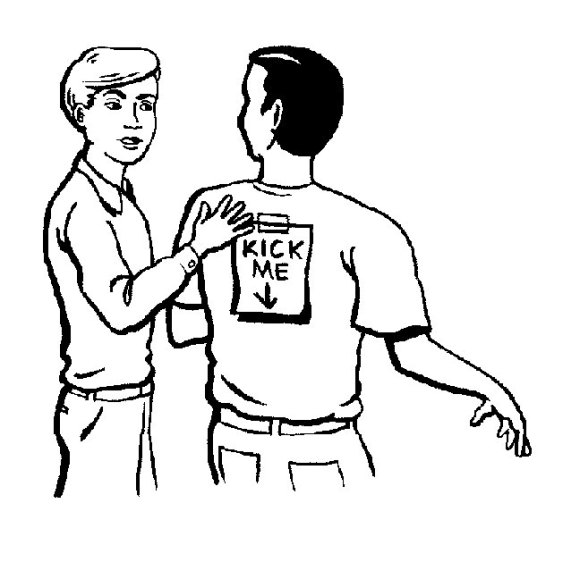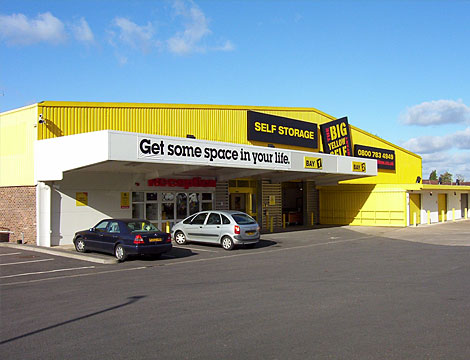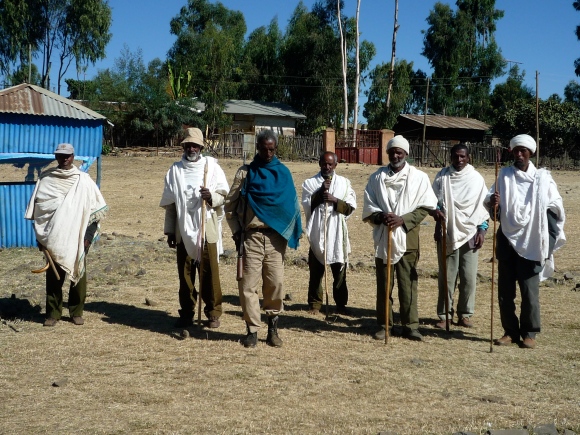Things will have changed (obv.) but certainly more positive than how McKibben would have us see it. (That’s not to say that McKibben hasn’t go it more right though of course).
Anyway, it’s good that artists are engaging in this stuff. Here’s a sample:
You said I was mad but I wanted to show you. So I collected rainwater, then found an oak tree. Not long ago I couldn’t have told you one thing about an oak. But around here oaks used to cover everything. That’s why you see the word deri so often. See, I’m learning from the landscape. And from you.
Then I found the oak tree’s galls, which are blisters on the leaves. I scraped them off and crushed them. Next I added some copper sulphate crystals that were hanging about in the garage – grandad used them to get a better blue from the hydrangeas. Last, I bought some gum arabic from that new art shop where Pound World was. Mixed it up. And I’m writing this down in my own ink.
Okay, I could have sent an attachment zinging round the planet. But I want to show you maybe we can’t rely on electricity forever. You know the ration hours: 7am till 11am, 6pm till 9pm.
But the young adapt quickly. When the government abandoned the Severn Barrage last year, it made us think. All that wasted effort and money, with a gap of only five miles from where they’d started over at Brean Down, and down in Lavernock, our side. But it wouldn’t return the investment. So now there are two enormous concrete piers in the Severn. Everybody calls it a catastrophe. But we can learn from it. The graffiti’ s fantastic they say.
One of my blogging butties calls these days the dangerous here and now. I love that phrase. Because, dangerous or not, this now is the best time of my life.
Yes, it’s different from the past. People say it’s ‘the Emergency’. But somehow it’s more real. I’ve learned to look around and ask what’s here – the land, the weather – and be involved in it all. I think about history and how it made us. Language, even. After all this time Welsh makes sense. Now I know what melin and pandy mean, and why those places are called what they’re called. Melin and pandy and ton and gwaith and nant. How they explain the land and what we do with it. As if words themselves were the landscape. Words like deri.
But you know I’m not one of the new Luddites. Moaning on in sackcloth they’ve woven themselves. Or the smug greenies, saying I-told-you-so. Those tipi villages on the banks of the Taff and the Rhymni? You won’t catch me there. Look, I’m not knocking it because in a way the Jeremiahs were right. But I still have faith in The Web. There’s wisdom there for all to find. Yes, the Web will stop that dog-eat-dog attitude we had before the banking crash. And that attitude is still a threat.
The Web shows we cannot return to the old life before the Emergency. There’ll never be business as usual again. Oil was finite and we wasted it. Then all the alternatives, like ethanol, caused problems.
But there’s a billion bloggers out there with ingenious schemes. And an infinity of practical tips. Where did this ink come from? The Web of course. It’s adapted from a medieval recipe.
Wind? The turbines on Mynydd Maendy are vital now. But the thousands of wind farms will never happen. A windmill is beautiful, turbines big as the Eiffel Tower are scary. As to solar, it’s coming. Ha ha. The government says hang on, it’s almost here. Latest plan is painting solar cells on to houses. I’m not holding my breath. But you’ll see it.
True, I never thought we’d run out of… things. There I was, playing Assassin’s Creed on the Play Station, with a takeaway chicken tikka in a polystyrene tray on the desk, a 35p energy drink in an aluminium can, which I’d crumple and chuck, to wash it down. Your father the eco-criminal.
As to politicians, they were always too late. Politics tried to catch up but events just raced away. Suddenly we were telling schools to teach kids to grow food. And how to cook that food. Because the parents, including me, were clueless. We were brought up on TV dinners, so children like you were in charge.
All down to energy, see. And resources. They realised that energy was too important to waste building another rugby stadium. The government was screaming about making it a producer society, not a consumer society. Because we’d consumed too much. We’d become locusts. So now we had to learn to produce. And I don’t mean plasma screens and Domino’s pizzas, I mean vegetables and DIY manuals and clean water and, yes, art.
The government came up with was a slogan. They’re good at slogans. Nobody spoke about your carbon footprint any more. It was too late for that. But your ‘intellectual footprint’ was the official phrase now. Make yours as big as possible.
After the National Curriculum was abandoned schools became more independent. And they’re smaller, like the one in our street. Cooking, IT, practical science and DIY before 11.a.m when the power’s on. Then gardening, language, maths and the arts – poetry, painting, music – when it’s off. Brilliant.
Thinking back, I liked school. But when I left I couldn’t boil an egg, grow spuds, change a plug, a tyre or a ball cock. Result? Grief all my life. Now the children run in, happy to learn. And all these schools have their own windmills.
Libraries too. There’s queues for the books and CDs. I used to think libraries were for old people. That libraries weren’t cool. Well nobody says cool anymore. We use love instead. And you know what I love? Reading those haiku things in kitchen candlelight. Just little poems, brilliant things, flickering on the page as the candle flame twists and our shadows conspire. I know some off by heart. Here’s one by this character, Issa. Around the time the ironworks were coming to Dowlais, Issa was wandering around Japan, writing poems. Just like some are doing here.
A bath when you’re born
and a bath when you die.
How stupid.
Why has it taken me fifty years to discover that? How stupid. Then there’s that pub, the Old House, in Llangynwyd. They say the building dates from 1150. Apparently they’ve started these triban writing competitions there again. Harder than haiku. It was the centre for local writers, centuries back, and it’s going great. Too far for us to get to, but good to know about. Cracking website, but they say you can’t beat it live.
I remember 2000, the fuel crisis. A warning we ignored. But suddenly oil became too precious to waste making crisp packets. Biofuel? Another pipe dream. All it meant was using a field to grow a crop to turn into a liquid to put into a petroltank so we could drive to see the Dan yr Ogof dinosaurs. Remember them? Now petrol and ethanol are rationed, and boy, are they expensive.
‘Stay home’ is our new mantra. To grow food. To produce, not consume. Oh yes, consuming is over. We’re producers now. Got to be. And we look after our water. Here, of course, we’ve ample. But it takes energy to pump and heat it. These water wheels they’re building are fine with me, and Dwr Cymru has used sonar to track the tributaries of the Great Spring of Glamorgan.
No, I’d never heard of it before. But six million gallons of fresh water were coming out at Ewenni every day, the cleanest water you’ll ever taste. From a glacier that melted ten thousand years ago in the Beacons.
What’s also great are the seaweed farms down in Ogmore. They were growing it for biofuel, but people said, no, we’ll eat it. The first man doing it is a hero there. He had a driftwood bonfire going and boiled a ton of the stuff. And gave it away, like a soup kitchen. But this was laverbread and the idea’s taken off.
As I keep saying, any food shortages will be sorted out by the new Genetic Engineering Institute. It’s being built near Chepstow, where the army camp was. No-one can get near, it’s all hush hush.
Yes, there are thousands of great schemes. That’s why they’re calling this period the People’s Renaissance. Creativity is a duty now. It could keep us alive. You won’t remember, but we were going to build the new Hollywood on the opencast at Llanharri. True! Well someone’s planting a sweet chestnut forest there now. Government wants us to eat nuts and bake with nut flour. Why not when it’s so much warmer?
Strange but you see more smoke than before. There’s coal being burned. Illegal yes, but it’s all around us. Gangs go into shafts and opencast craters because of black market prices. Okay, I’ve done it myself. There’s that ton in the back garden, because we can’t trust the gas coming through. Yes, for some the black economy is the only economy. You can get mutton and venison, petrol or bio. But it costs.
Around here we were almost ready for the Emergency. After 200 years, we still had roots in the co-operative movement. So we’re good at working together. And all those time-banking schemes, like Creation in Blaengarw, have really expanded. Credit unions are flourishing, while the local currencies are fine by me. Just don’t end up being paid in Treorci dollars when you live in Troedyrhiw.
Yes, we were ready. And it’s better now. I actually talk to neighbours, and we make sure the oldsters are fine. Funny, I used to think Neighbourhood Watch was consumer paranoia. Middle class people scared of losing their X Boxes. But it’s just about mucking in. Isn’t that how it’s supposed to be?
Hey, real writing’s hard work. I’ll stop now because the neighbours are coming round. Plus your uncle in his latest electric car. Flash git, but he’s bringing his luxury nettle soup. Because Saturday night is story night. Everybody cooks and we share the booze. Yes, that gooseberry wine. From the south side of the allotment. Like a good Sauvignon Blanc. And we’ll sit in the candlelight, telling our stories. You see, that’s what I’ve learned. That everybody has a story. You have so many already, in so few years. Yet before all this, I never had the chance to tell mine.
Yes, I love story telling. It’s why we’re on the planet. To tell stories about how it was in the past, or what we’re doing in this dangerous here and now. First time when they asked me to join in, I was scared. Didn’t have a clue. But now when I’ve finished telling a tale, and people laugh or slap me on the back, or are quiet for a moment, it seems the most important thing I’ll ever do. Hey, maybe I’ll read this. Maybe I will.

























